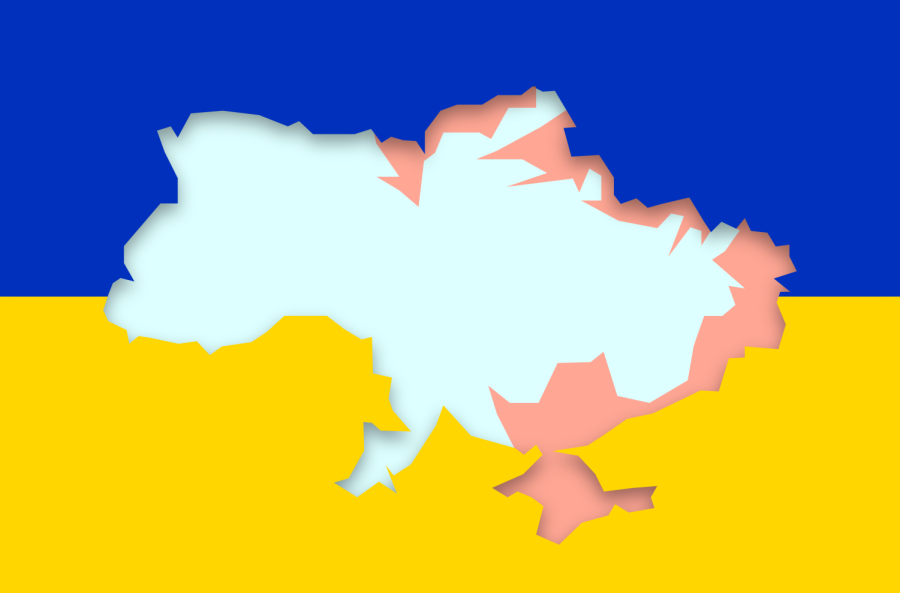Bridge Explosion Escalates Tensions in Russia-Ukraine War
On the Kerch Strait Bridge in Crimea, an explosion occurred around 6 a.m. causing catastrophic damage. CCTV footage shows the Oct. 8 explosion fully encompassing one side of the bridge while civilians and seven suspended railway cars got caught in the blast. Russia’s National Anti-Terrorism Committee identified an unmarked truck as the source of the explosion. The Russian Federal Security Office has detained five Russian citizens and three Ukrainian and Armenian suspects four days after the incident. Three casualties have been reported.
The Kerch Strait Bridge was erected in 2018, with a span of almost 12 miles (19 km.) between the Crimea Peninsula and the Krasnodar Krai Peninsula. Crimea, which was annexed by Russia in 2014, serves as an important connection of goods between the troops stationed in Ukraine and mainland Russia. Olha Krupa, a Seattle University associate professor in the Institute of Public Service, provided insight about the bridge’s strategic importance.
“[The Kerch Strait Bridge] supplies all the military, personnel, fuel, ammunition [and] explosives. The bridge is a way [to supply] Crimea; and from Crimea, [they send] supplies to southern Ukraine, where the frontlines are,” Krupa said.
Although Ukraine has not claimed responsibility for the explosion, some Ukrainian officials have publicly displayed their contentment with the challenges Russia faces in the wake of the attack. Regardless of the political discourse, Ukrainian civilians are suffering.
Over the last eight months, Ukrainian citizens have been fleeing the country as more cities become uninhabitable and the death toll rises. The BBC reported over 12 million Ukrainians have left the country and five million are seeking refuge in other countries. In April, over 500 Ukrainian refugees settled in Washington State.
Lilit Oganesian’s family emigrated to the United States on Sept. 15. Prior to the war, they lived in an apartment building while Oganesian worked at a passport office. When the war began Feb. 24, the family fled to Poland, where they met Bill Gordon, a Washingtonian who was helping in Ukrainian relief efforts. Eventually, the family emigrated to Ellensburg, Wash., where they now live with the Gordon family.
“The war in Ukraine is very cruel, not fair [and] inhuman,” Oganesian said.
While Oganesian waits for a work permit, she takes care of her youngest son and husband, who has two broken legs, while her oldest son goes to school. The family has persevered through a time of unprecedented change.
“This is the war that changed our lives completely. Everything was divided into ‘before’ and ‘after,’ now we don’t know who we are and what will happen to us and our children. But God did not leave us in a difficult situation because we have the Gordon family, who have become like family to us,” Oganesian said.
While Oganesian and other civilians flee their home countries, tensions continue to escalate in the Baltics. One day after the attack, Oct. 9, Russian President Vladimir Putin met with Russian Investigative Committee chairman Alexander Bastrykin to review the preliminary results of the investigation into the bridge explosion. Putin and Bastrykin accused Ukraine of committing acts of terrorism against Russian civil infrastructure.
“Terrorism and resistance are always in the eye of the beholder. One person’s terrorist is another person’s freedom fighter,” Nova Robinson, a Seattle U History and International Studies professor, said. “When we are looking at what Russia is framing as terrorism, many Ukrainians see it as an act of revenge and resistance against the Russian occupation of Crimea.”
After the explosion of the bridge, Russia launched one of the largest airstrikes on Ukraine since the beginning of the war. Neighborhoods, apartment buildings, parks, intersections and tourist sites were hit during the air raid. Many Ukrainians were left without power while others hid in underground subway stations. By Oct. 11, 19 casualties and over 100 injuries were reported, with the death toll still rising.
After Russia’s missile attacks, politicians and analysts fear the Kerch Strait Bridge explosion has escalated tensions in the war. This month marks the 60th anniversary of the Cuban Missile Crisis, and the threat of nuclear armageddon is as high as it has ever been. World leaders, including United States President Joe Biden have expressed concern over Russia employing nuclear weapons on Ukraine.
“We are certainly walking cautiously given the adversary and the power that [they] have in terms of military weaponry, geo-political power in the UN and economic power,” Robinson said.


